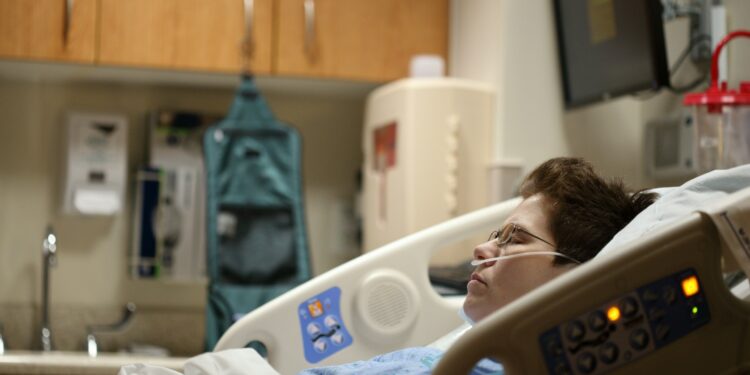They are antibiotic-resistant.
A recent study highlights a troubling trend: patients discharged from hospitals are carrying antibiotic-resistant “superbugs” into their homes. The research indicates that family members of these patients are 71 times more likely to contract a MRSA (methicillin-resistant Staphylococcus aureus) infection compared to those with no recent hospital exposure in their families.
The study found that the risk of MRSA infection among family members increased with the length of the patient’s hospital stay, even if the discharged patient was never diagnosed with MRSA. Lead researcher Aaron Miller, a research assistant professor at the University of Iowa’s internal medicine-infectious diseases department, noted that patients may harbor MRSA during their hospital stay and then transmit it to their household members. This suggests that hospitals may contribute to the spread of MRSA into the community through patients who are asymptomatic carriers.
MRSA infections are resistant to many common antibiotics, making them challenging to treat and potentially dangerous if they spread to the bloodstream or lungs. While MRSA is commonly spread in hospital settings, it can also be transmitted in the community through direct skin-to-skin contact.
For the study, researchers examined a database of insurance claims from 158 million enrollees with at least two family members on the same plan. They identified over 424,000 MRSA cases among approximately 343,000 insured individuals. Of these, more than 4,700 cases were potentially transmitted to family members by patients who had been diagnosed with MRSA, and about 8,000 cases were linked to recently discharged patients who had not been diagnosed with the superbug.
The study revealed that even if a hospitalized family member was not diagnosed with MRSA, their hospitalization still increased the risk of MRSA infection among relatives by 44%. The risk escalated with the length of the hospital stay: a stay of one to three days raised the risk by 34%, while a stay of four to ten days increased it by 49%. Hospitalizations longer than ten days were associated with a 70% to 80% higher risk of MRSA infection among household members.
Published on August 7 in the journal Infection Control & Hospital Epidemiology, the study underscores the need for rigorous infection control practices in healthcare settings. Dr. Thomas Talbot of Vanderbilt University Medical Center emphasized the importance of hand hygiene and environmental cleaning in preventing the spread of resistant bacteria. Miller acknowledged that while the study identifies a significant risk factor for MRSA transmission, the overall risk remains relatively low and should not be overstated.

































Discussion about this post